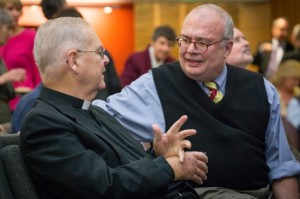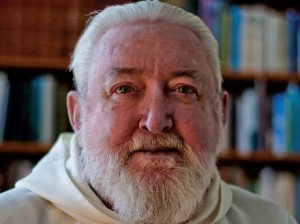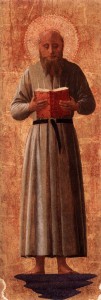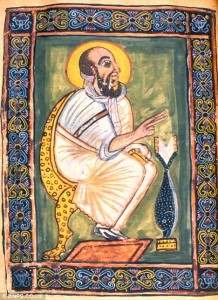 The Church hears in the gospel for the 27th Sunday Through the Year Lord’s reference to the parable of the Mustard Seed (Luke 17:5-10). The teaching of the Mustard Seed also appears in Mark 4:30-32 and Matthew 17:20.
The Church hears in the gospel for the 27th Sunday Through the Year Lord’s reference to the parable of the Mustard Seed (Luke 17:5-10). The teaching of the Mustard Seed also appears in Mark 4:30-32 and Matthew 17:20.
When the apostles say to Jesus, “Increase our faith,” He responds, “If you have faith the size of a mustard seed, you would say to this mulberry tree, ‘Be uprooted and planted in the sea,’ and it would obey you.”
Today, we could easily hear in the desire of the apostles: educate us to see, to know, to experience this Kingdom you are talking about. Perhaps we can relate the concern the apostles present to what Saint Anselm famously said, ours is a “Fides quaerens intellectum” (a faith seeking understanding; or, faith is a trust in God, a love for God, the lens by which we we seek to know what a deep trust in God means in a concrete way connecting the dots of life).
The holy bishop of Hippo tells us,
A mustard seed looks small. Nothing is less noteworthy to the sight, but nothing is stronger to the taste. What does that signify but the very great fervor and inner strength of faith in the Church?
Sofia Cavalletti taught us, “The person who at a certain point becomes aware of the dynamic nature of the Kingdom of God, which is like a mustard seed, will gradually come to see this dynamism filling the universe and empowering man and his history” (Religious Potential of the Child, 165). Hence, the teaching is a recognition that faith as a gift of God is enclosed within our hearts, “like the pearl of great value and the mustard seed.”
This education in the faith may be connected with a reflection Father Luigi Giussani has,
“As a result of the education I received at home, my seminary training, and my reflections later in life, I came to believe deeply that only a faith arising from life experience and confirmed by it (and, therefore, relevant to life’s needs) could be sufficiently strong to survive in a world where everything pointed in the opposite direction, so much so that even theology for a long time had given in to a faith separated from life. Showing the relevance of faith to life’s needs, and therefore – and this ‘therefore’ is important –showing that faith is rational, implies a specific concept of rationality. When we say that faith exalts rationality, we mean that faith corresponds to some fundamental, original need that all men and women feel in their hearts.” (Luigi Giussani, The Risk of Education, pp. 11-12).
Indeed, Lord, increase in us the desire to be with you.





